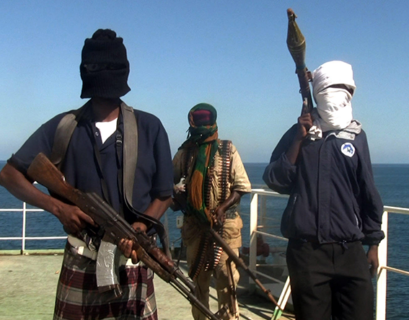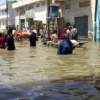In the unstable land of Somali, violence reared its head once again as a roadside blast claimed the lives of six dedicated telecom workers. On the outskirts of Mogadishu, the capital city, tragedy struck as employees of Hormuud Telecom fell victim to an insidious attack. The company confirmed the devastating incident, labeling it as a “roadside bomb attack” in the Garasbaley district.

This reprehensible act of terrorism not only extinguished innocent lives but also highlighted the persistent threat posed by the Al Qaeda-linked militant group, al Shabaab. While no entity has officially claimed responsibility for this heinous act, the fingerprints of al Shabaab’s modus operandi loom large over such atrocities.
Al Shabaab, notorious for its brutal insurgency spanning nearly two decades, has been the architect of countless attacks on both civilian and military targets. Its objective remains grimly clear: to destabilize the fragile fabric of Somali society, undermine the authority of the federal government, and supplant it with their draconian interpretation of Sharia law.
The telecom sector, pivotal in connecting communities and facilitating progress, has found itself ensnared in the crosshairs of this relentless conflict. Companies like Hormuud Telecom, committed to bridging communication gaps and fostering development, have sadly become unwitting casualties of this protracted struggle.
Beyond the tragic loss of life, such attacks have far-reaching implications for Somalia’s socio-economic landscape. The targeting of telecom workers not only disrupts vital communication networks but also instills fear, hampering the everyday lives of ordinary citizens who rely on these services for their livelihoods.
Moreover, the deliberate assault on Hormuud Telecom employees underscores the precarious environment in which businesses operate in Somalia. The specter of violence looms large, casting a shadow of uncertainty over investment and hindering the country’s path towards stability and prosperity.
In the absence of concrete measures to counter extremism and bolster security, Somalia risks being perpetually held hostage by the whims of militant groups like al Shabaab. Efforts to combat terrorism must be multi-faceted, encompassing not only robust security operations but also initiatives aimed at addressing the root causes of radicalization and extremism.
International support and collaboration are imperative in this regard, with the global community rallying behind Somalia to confront the scourge of terrorism head-on. Diplomatic engagement, capacity-building initiatives, and targeted development assistance can serve as potent tools in fortifying Somalia’s resilience against the menace of extremism.
Furthermore, empowering local communities to resist the influence of extremist ideologies and fostering inclusive governance structures are critical steps towards fostering lasting peace and stability in Somalia. By addressing grievances, promoting dialogue, and investing in education and economic opportunities, Somalia can chart a course towards a brighter, more secure future.
The tragic loss of the six telecom workers serves as a stark reminder of the grave challenges confronting Somalia. Yet, in the face of adversity, resilience and resolve must prevail. Together, the people of Somalia, supported by the international community, can defy the forces of terror and pave the way for a future defined by peace, progress, and prosperity.













